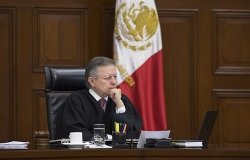The Tragedy of Tunisia
"Lack of jobs is only one of several issues that have disillusioned Tunisia’s young and enticed some of them to militancy," writes Robin Wright.
If ever there were an Arab country you want to work, it’s Tunisia.
Of the 22 Arab countries, Tunisia is the only one that has weathered the Arab Spring and ended up with a viable democratic government. Its Islamist party has consistently worked with secular counterparts and not made the kind of power plays that doomed Egypt’s Muslim Brotherhood and its democratic transition. And Tunisia’s three national elections–held at unheated schoolrooms across the country–between October and December were practically pristine. (I was an international monitor at the December presidential vote.)
Tunisia is a sliver of North Africa nestled between disintegrating Libya and the military-backed government of Algeria. It is a stark contrast to those neighboring geographic giants, and to increasingly autocratic Egypt further east. Tunisia has represented a slice of hope.
Yet Tunisia has also provided more foreign fighters than any other country—in absolute numbers and proportionately—to Islamic State and other militant groups fighting in Syria and Iraq. More than 3,000 had joined by the end of 2014. Last fall the government said it had prevented an additional 9,000 from leaving the country. Just as alarming, an estimated 500 that have trained as killers have returned home.
The tragedy of Tunisia, which played out Wednesday in the terrorist attack at a Tunis museum that killed at least 21, is reflected in Sidi Bouzid.
The poor central city is a long way from the Mediterranean beaches and white-washed buildings with aqua trim that are more familiar to tourists. It was in remote Sidi Bouzid that a young fruit vendor set himself on fire in late 2010 to protest social inequality. Mohammed Bouazizi‘s grisly death sparked the wave of uprisings in 2011 that became known as the Arab Spring.
A large stone monument at the site where Mr. Bouazizi covered himself with paint thinner and lit a match honors his inspiration. It shows a fruit vendor’s cart pushing over several thrones. On the side, written in Arabic, English, and French: “For those who yearn to be free.”
Tunisia’s problem is that four years after Mr. Bouazizi’s self-immolation, flash points remain and many still face profound inequities. When I went to Sidi Bouzid in 2012, a vendor selling bulbous oranges at the street corner where Mr. Bouazizi had worked told me, “We have more freedoms now, but fewer jobs.”
Today, almost a third of Tunisia’s young people are unemployed. It’s not just the poor: More than 200,000 recent university graduates can’t find work. “Most of them have been waiting five, eight, even ten years for a job,” Karim Helali of Afek (“Horizons”), a progressive party favored by Tunisia’s young, told me in December.
Mr. Helali was not surprised by the appeal of militant groups. “Any time these people decide to go to their deaths, it’s because they don’t accept conditions of life. They believe they are rejected by society,” he said.
Rachid Ghannouchi, leader of Ennahda, Tunisia’s moderate Islamist party, told me: “The young are still waiting for the fruits of the revolution. So the poorest region is still in protest.”
On the eve of Tunisia’s first democratic election, for parliament, in October, a Pew poll found that almost 90% of Tunisians described the economy as bad. More than half said the tumultuous transition had left Tunisia worse off than it had been under autocratic rule. Support for democracy had “declined steeply” since the Arab Spring, Pew found.
Three successful elections gave Tunisia a badly needed boost. Lack of jobs is only one of several issues that have disillusioned Tunisia’s young and enticed some of them to militancy. The fragile democracy faces tougher core issues, reflected in the fact that only 32% of eligible voters participated in the final presidential poll. The lowest turnout was among the young. And the lowest turnout in any town nationwide was in Sidi Bouzid.
Clearly, Tunisia has not yet produced enough to believe in.
The opinions expressed here are solely those of the author.
This article was originally published in The Wall Street Journal’s Washington Wire.
About the Author

Robin Wright
Author and columnist for The New Yorker

Middle East Program
The Wilson Center’s Middle East Program serves as a crucial resource for the policymaking community and beyond, providing analyses and research that helps inform US foreign policymaking, stimulates public debate, and expands knowledge about issues in the wider Middle East and North Africa (MENA) region. Read more









